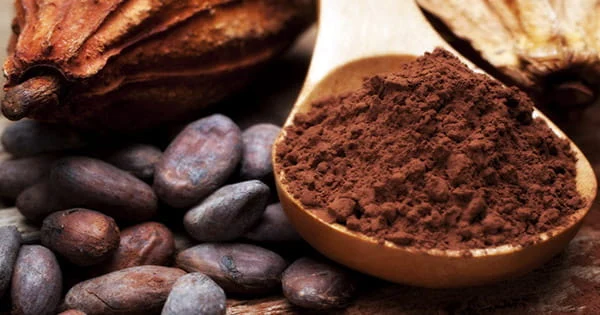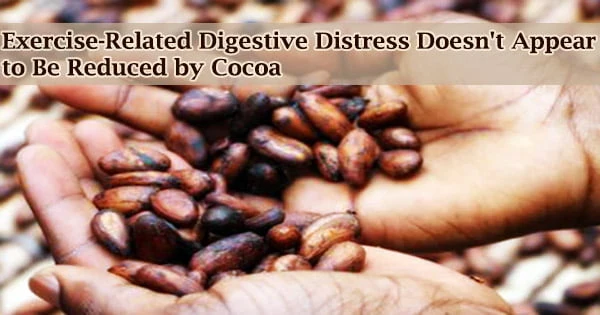The Winter Olympics showcased impressive athleticism, but being at the top of one’s game doesn’t always guard against gastric upset caused by exertion. Surprisingly, some people are supplementing their diets with cocoa to alleviate these symptoms.
Long-term daily use of cocoa does not appear to benefit exercise-related digestive difficulties in male athletes, according to new research published in the American Chemical Society’s Journal of Agricultural and Food Chemistry.
For some people, severe or strenuous exercise can create stomach problems. Nausea, heartburn, abdominal cramps, and diarrhea are some of the symptoms. In the worst situations, athletes’ symptoms are so severe that they quit working and withdraw from competitions.
Previous research has revealed that long-term cocoa consumption may help to ease these problems due to the delicious substance’s high flavonoid content. These chemicals have been proven in animal experiments to have prebiotic effects on beneficial gut microorganisms, enhancing antioxidant and anti-inflammatory activities.

Humans haven’t been studied in a systematic method to see if prolonged ingestion of cocoa powder will help with exercise-related digestive issues. As a result, François Fenaille, Mar Larrosa, and colleagues set out to create a carefully controlled yet realistic human experiment to see if cocoa may assist.
The researchers conducted a randomized, placebo-controlled study of 54 physically fit male athletes who maintained a stringent training schedule for 10 weeks, using the gold standard format for human studies.
Participants supplemented their regular meals with either flavonoid-rich cocoa or a placebo starch powder mixed with semi-skim milk, which they consumed every day at breakfast throughout that period. The athletes were put through a high-endurance running test at the start and end of the training cycle.
The gastrointestinal symptoms of the individuals did not change in either supplementation group, demonstrating that cocoa did not help with exercise-induced digestive issues. Finally, the researchers discovered relatively minor changes in the gut microbiome’s composition, as well as plasma and fecal metabolites.
Although the athletes’ high-fiber diets may have obscured a minor effect of the cocoa, the researchers conclude that cocoa is not an effective training supplement for suppressing gastrointestinal symptoms or modifying the general gut flora of endurance athletes.
The authors thank the Spanish Ministry of Economy, Industry, and Competitiveness, the European Molecular Biology Organization, the Spanish Ministry of Education, Culture, and Sports, and the MetaboHUB (France) infrastructure for their support.





